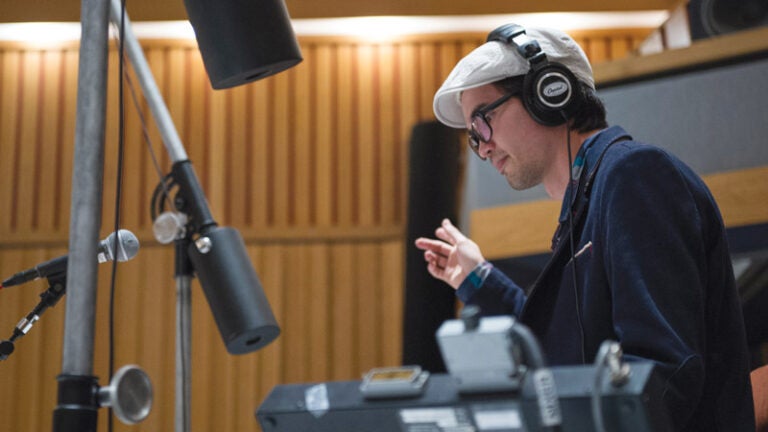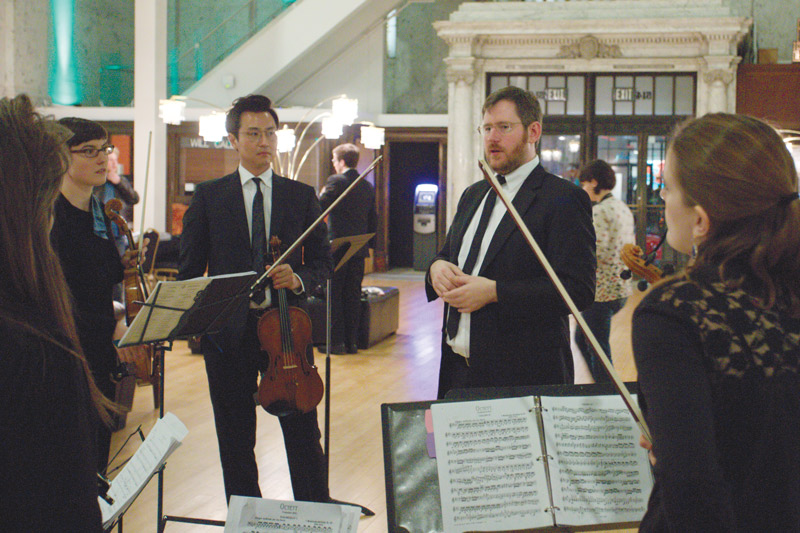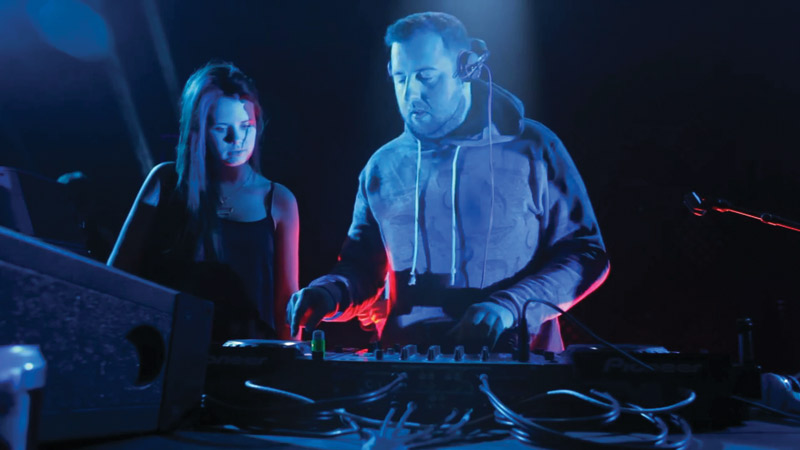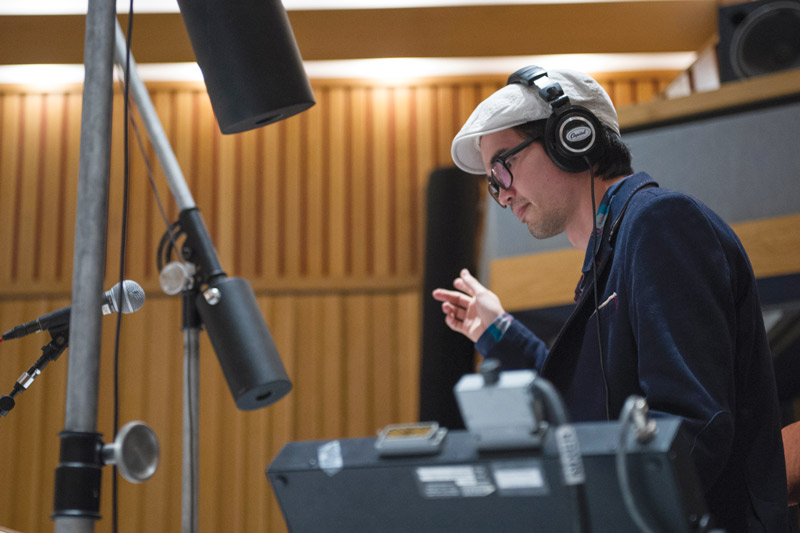
(Photo/Chandler Golan)
5 New Master’s Programs Keep Students in Sync with the Music Industry
From the business of live music to screen scoring, USC Thornton finds niches for music students.
As the music industry undergoes seismic changes, the USC Thornton School of Music helps its students stay at the forefront. The school unveiled five master’s degree programs that prepare students for new and emerging opportunities in education, business, community advocacy and more. The programs vary in length from one to two years, and some are so flexible they enable students to keep existing jobs while they pursue coursework.

COMMUNITY MUSIC
Combining skill sets in music education, community engagement and advocacy, this program brings music instruction and performance into non-traditional settings, such as prisons, hospitals, senior living communities and centers for marginalized and disadvantaged people of all ages.

CONTEMPORARY TEACHING PRACTICE
In collaboration with the USC Rossier School of Education, this program helps teachers stay in step as K-12 classrooms become more culturally diverse. Whether teaching a marching band, jazz sextet or mariachi band, graduates will have the tools to enrich traditional school programs.
SCREEN SCORING
Screen scoring has been taught at USC Thornton for decades as a certificate program, but now it has been reimagined as a master’s degree. Students learn how to compose, conduct and produce music for screens of all types and for live action and animated films, as well as video games and virtual reality.

ARTS LEADERSHIP
Artists, arts administrators and cultural entrepreneurs learn the skills needed to lead their own ensembles and organizations. The program draws from resources at USC’s music, art and design, architecture, dance, dramatic arts and cinematic arts schools.

MUSIC INDUSTRY
The degree offers four emphasis options: music supervision/visual media, the live music business, music entrepreneurship and the recording industry. Courses in artist management, music publishing, music instrument manufacturing/distribution and radio are options, as are business courses at the USC Marshall School of Business.




